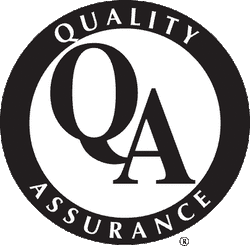
Some people hate quality assurance. They enjoy the creative stages of a project, when they can map out storyboards or design ideas and turn policy-speak into friendly, accessible language. They don’t enjoy having to review that friendly, accessible language for typos.I have to confess though – and I’m sure this won’t surprise anyone who knows me even a little bit – that I do enjoy QA.
There’s definitely an editor inside me. I like QA-ing other people’s work most (because it’s much easier and more effective when you’re objective and not close to the content) but I’m pretty happy QA-ing my own work too, when I need to.
Regardless of whether or not you enjoy QA, however, it’s important and something that needs to be done. What’s more, it needs to be done properly – giving something a cursory once-over and ticking the QA box isn’t enough.
A thorough and reliable QA process will eliminate all avoidable errors or bugs before you send something out to stakeholders. This means that they can focus on content and design reviews and it’ll take fewer iterations to get to sign-off point. It also means you can rest assured that any rework required will be about improving and enhancing content and design, rather than fixing mistakes you missed the first time around.
Aside from the financial benefits, giving QA the attention it deserves helps you deliver high quality deliverables, which means happy customers who trust you. You’ll earn a reputation for integrity and excellence (either as an organisation or as an individual (and both matter)) and, because happy customers talk, you’ll benefit from recommendations.
There’s an internal benefit as well: a focus on QA helps to develop a culture of continuous improvement. Colleagues will help each other develop, challenging things and preventing complacency setting in and leading to carelessness. In my experience, high standards are infectious – if one or two members of the team set the right example and pick up even the littlest things, these good habits will spread and you’ll develop a true QA culture.
So I see six key benefits of a thorough and effective QA process and culture:
http://stephaniededhar.wordpress.com/2012/01/24/six-benefits-of-real-quality-assurance/
There’s definitely an editor inside me. I like QA-ing other people’s work most (because it’s much easier and more effective when you’re objective and not close to the content) but I’m pretty happy QA-ing my own work too, when I need to.
Regardless of whether or not you enjoy QA, however, it’s important and something that needs to be done. What’s more, it needs to be done properly – giving something a cursory once-over and ticking the QA box isn’t enough.
A thorough and reliable QA process will eliminate all avoidable errors or bugs before you send something out to stakeholders. This means that they can focus on content and design reviews and it’ll take fewer iterations to get to sign-off point. It also means you can rest assured that any rework required will be about improving and enhancing content and design, rather than fixing mistakes you missed the first time around.
Aside from the financial benefits, giving QA the attention it deserves helps you deliver high quality deliverables, which means happy customers who trust you. You’ll earn a reputation for integrity and excellence (either as an organisation or as an individual (and both matter)) and, because happy customers talk, you’ll benefit from recommendations.
There’s an internal benefit as well: a focus on QA helps to develop a culture of continuous improvement. Colleagues will help each other develop, challenging things and preventing complacency setting in and leading to carelessness. In my experience, high standards are infectious – if one or two members of the team set the right example and pick up even the littlest things, these good habits will spread and you’ll develop a true QA culture.
So I see six key benefits of a thorough and effective QA process and culture:
- You’ll achieve sign-off more quickly.
- You’ll reduce the time and money spent on rework.
- You’ll build trust and respect.
- You’ll earn a reputation for excellence.
- You’ll win word-of-mouth business.
- You’ll nuture ongoing improvement.
http://stephaniededhar.wordpress.com/2012/01/24/six-benefits-of-real-quality-assurance/
 RSS Feed
RSS Feed